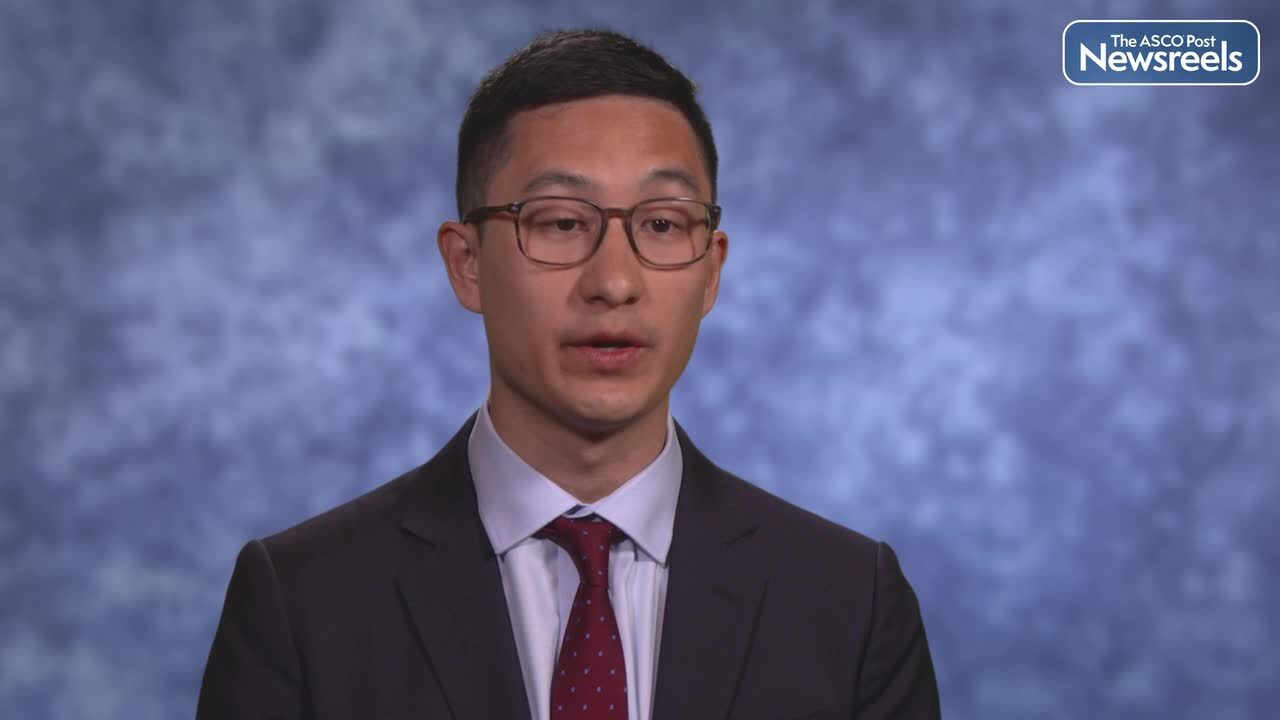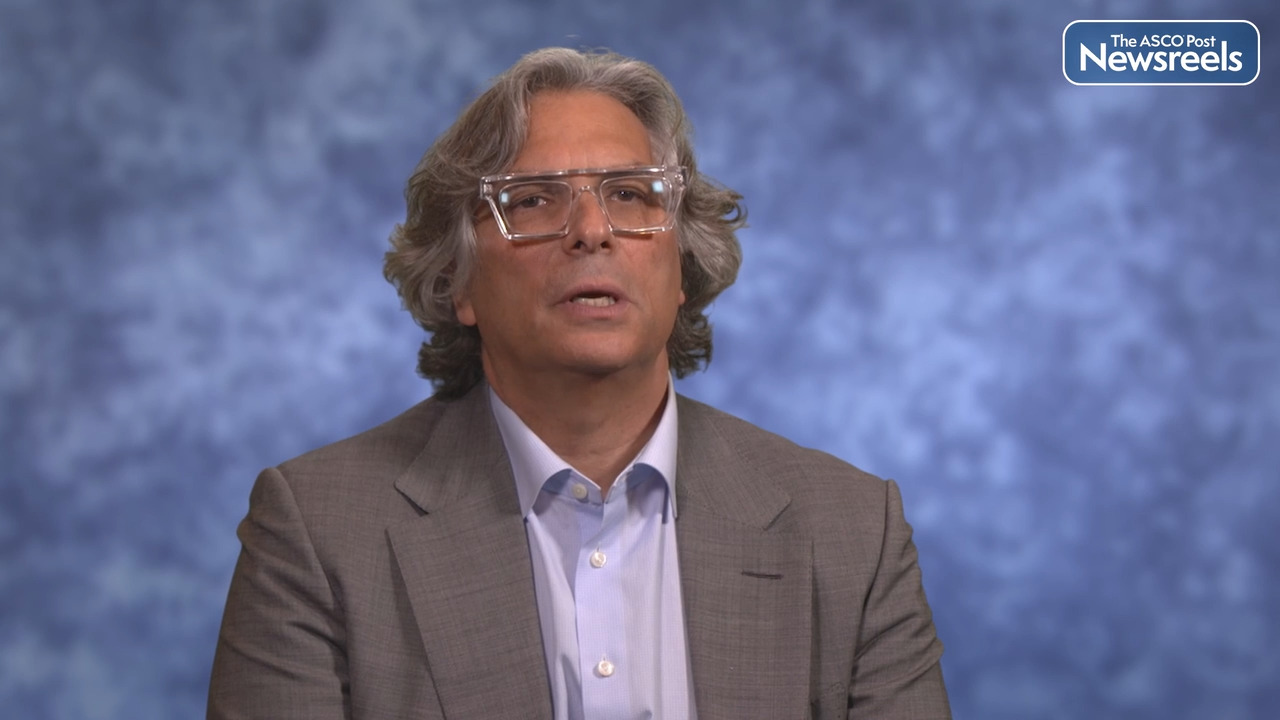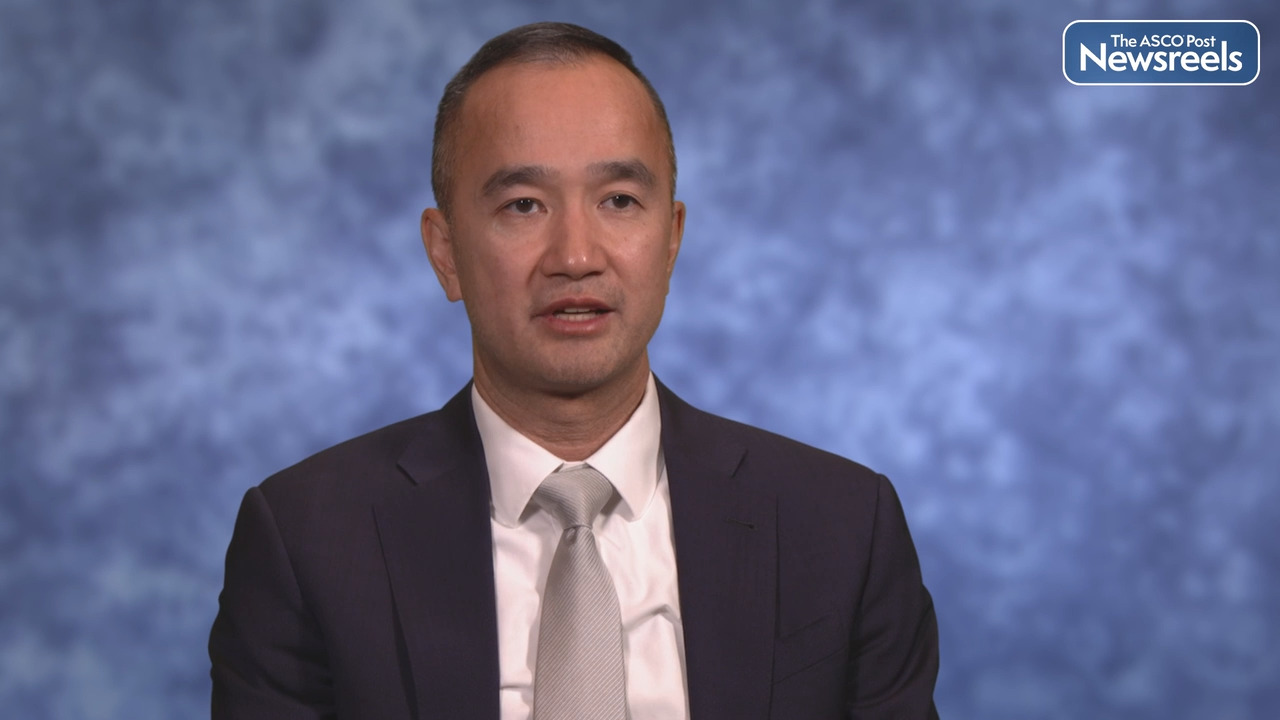Hielke-Martijn de Vries, MD, on Penile Cancer: New Data on Atezolizumab and Radiotherapy
2022 ASCO Genitourinary Cancers Symposium
Hielke-Martijn de Vries, MD, of the Netherlands Cancer Institute, discusses phase II findings on the use of atezolizumab with or without radiotherapy for patients with advanced squamous cell carcinoma of the penis. The study was designed to address the poor prognosis for this disease by exploring whether a protracted schedule of radiotherapy for locoregional disease, in combination with immunotherapy, could improve outcomes (Abstract 3).
The ASCO Post Staff
Wesley Yip, MD, of Memorial Sloan Kettering Cancer Center, discusses phase II results on neoadjuvant gemcitabine and cisplatin for high-grade upper tract urothelial carcinoma, which was well tolerated and demonstrated a favorable pathologic response rate. Dr. Yip notes that this treatment, given prior to nephroureterectomy, did not significantly delay surgery or increase perioperative complication rates.
The ASCO Post Staff
Neil E. Fleshner, MD, MPH, of the Princess Margaret Cancer Centre, discusses phase II results from the ACDC-RP trial, which indicate a significant tumor response to neoadjuvant abiraterone acetate plus prednisone and leuprolide, with or without cabazitaxel, in patients with high-risk prostate cancer. Those who exhibited either a complete response or minimal residual disease experienced higher rates of progression-free survival. According to Dr. Fleshner, genomic efforts are underway to determine predictors of response.
The ASCO Post Staff
Kim Nguyen Chi, MD, of the University of British Columbia, BC Cancer-Vancouver Center, discusses first phase III results from the MAGNITUDE study, which explored the use of the PARP inhibitor niraparib with abiraterone acetate and prednisone as first-line therapy in patients with metastatic castration-resistant prostate cancer with and without homologous recombination repair gene alterations (Abstract 12).
The ASCO Post Staff
Petros Grivas, MD, PhD, of the University of Washington and Fred Hutchinson Cancer Research Center, discusses results from Cohort 3 of the TROPHY-U-01 study, which assessed sacituzumab govitecan-hziy in combination with pembrolizumab in patients with metastatic urothelial cancer who experienced disease progression after platinum-based regimens (Abstract 434).
The ASCO Post Staff
Matthew R. Smith, PhD, MD, of Massachusetts General Hospital Cancer Center, discusses overall survival findings from the ARASENS trial, which assessed the efficacy of the androgen receptor inhibitor darolutamide vs placebo in combination with androgen-deprivation therapy and docetaxel for patients with metastatic hormone-sensitive prostate cancer (Abstract 13).





